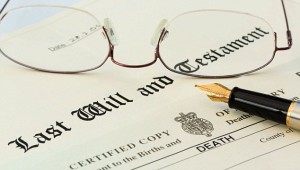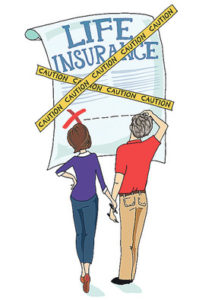 Many young people think of estate planning and financial planning as something only seniors must do. A Will In Your 20’s? The truth is, if every adult with a spouse, child, or business, regardless of age, had solid plans in place when they were young we would all be very well off during mid-life and into our senior years. People with A Will In Their 20’s and 30s are in the prime of life. They have a lot of years to set aside money for later. If you start early then you do not need to set aside very much each year. You can end up with a really nice nest egg.
Many young people think of estate planning and financial planning as something only seniors must do. A Will In Your 20’s? The truth is, if every adult with a spouse, child, or business, regardless of age, had solid plans in place when they were young we would all be very well off during mid-life and into our senior years. People with A Will In Their 20’s and 30s are in the prime of life. They have a lot of years to set aside money for later. If you start early then you do not need to set aside very much each year. You can end up with a really nice nest egg.
Young people marry, start a family, and buy a home. Some will also start or buy a business so there are a lot of pressures on the financial side of life. This can be made easier if you have a solid financial plan, an estate plan, and a will to protect you and your young family.
A Will In Your 20’s or 30’s
Whether we realize it or not we all need to think about the following as we take steps in our lives:
- Getting married
- Having Children
- Buying a home
- Saving for retirement
- Buying life insurance
- Starting a business
- Preparing a will
A Will In Your 20’s! And Having children
Once you have children, you have taken on a huge responsibility that goes on whether you are alive or die in an accident. One of the ways to ensure that your child has the life you had hoped for them is to have a will that states how your assets will be used to support them and who will look after them. If there is no will, someone in the government will decide who will raise your kids and how the money will be used.
Your will can also state how the funds will be used to support the kids when they have access to the funds and who will manage the funds until they are old enough to manage the funds themselves.
Buying a home
When you buy your home, most couples will do so in a joint tenancy which means that if one dies, the other takes over the ownership of the home automatically, called a right of survivorship. The house remains out of the estate and probate is not required for its transfer to the surviving owner meaning you pay less probate or death taxes as a result.
Without joint tenancy, you have tenancy-in-common which doesn’t provide a right of survivorship. The half of a house owned by a deceased tenant-in-common falls into the deceased’s estate, where it’s subject to creditors, claims, and delays.
Saving for retirement
Savings plans for retirement should start early in life. Investors should consider how these assets will be handled in probate. Plans in some situations can be transferred to spouses tax-free. In the early years when you do not have a lot of savings, many people will take out insurance coverage to protect their families should something happen to them.
Buying life insurance
Leaving a life insurance policy to a spouse directly also keeps the insurance proceeds out of the estate. This ensures that there are funds in the spouse’s hands no matter what is going on in the estate. This is better for the spouse. On the other hand, there are excellent reasons to name the estate as the beneficiary of a life insurance policy. The main benefit is that it provides cash in the estate that can be used for paying taxes. Or paying debts (such as paying off the mortgage on the couple’s home).
Life insurance can also be used to provide money that can be distributed to one of the children. For example, the deceased was leaving his or her major asset – a business or farm, for example – to one child. If they didn’t have enough assets to give a similar amount to another child. Another use of life insurance is to create funds for holding property such as a cottage in trust.
Life insurance is much cheaper at younger ages than it is when people are older. Young people should consider the various ways that life insurance can be used to their advantage. It can replace income. It can pay out a mortgage, leaving the widowed spouse with a clear title to the home. Also, it can provide funds to leave in trust for the children. It can provide cash flow to be used to pay taxes and expenses.
Starting a business
Finally, young people are tying up a great deal of time, effort, and capital in a business. They must plan right from the start to protect their families in the event they pass away prematurely. If the business is incorporated and there are other shareholders, there should be a buy-sell agreement put into place. It should clearly state what happens to the shares of a deceased shareholder. Often the agreement provides that the other shareholders will buy back the shares. In a fledgling company (and often in more established ones, for that matter), this probably means that a life insurance policy owned by the company will be taken out on the shareholder’s life.
Start your planning today. Talk to a financial adviser and assess what your next steps should be. Enable a high quality of life during retirement as well as high quality of life for your family should something happen to you.
 If you are nearing the retirement stage of life how much life insurance do you need? This is the question that many seniors ask themselves. You probably have heard horror stories about people who canceled their life insurance and died shortly after. They left a huge debt for the family and no income to support dependents. They were simply trying to save money and did not expect to die so soon.
If you are nearing the retirement stage of life how much life insurance do you need? This is the question that many seniors ask themselves. You probably have heard horror stories about people who canceled their life insurance and died shortly after. They left a huge debt for the family and no income to support dependents. They were simply trying to save money and did not expect to die so soon.
